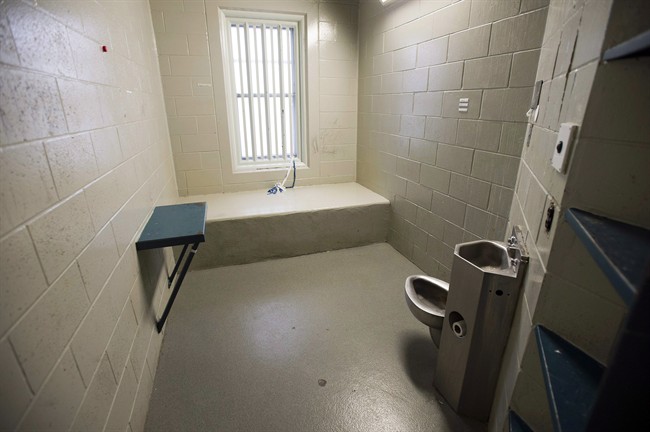TORONTO – It’s time to stop locking young people in solitary confinement for days at a time, says Ontario’s Advocate for Children and Youth.

Last year, 38 teens were placed in solitary confinement for longer than 72 hours, and many were placed in “dehumanizing conditions” while in solitary confinement, a new report from the advocate’s office finds.
And while overall the use of solitary confinement in provincial youth facilities is down – from 1,021 placements in 2009 to 701 in 2014 – a growing number of youth under 16 years old are being placed in segregation. In 2014, 186 placements were reported – up from 106 in 2013.
ROUGH JUSTICE: The human cost of Ontario’s violent, crowded jails
Provincial advocate Irwin Elman said a ban on solitary for youth exceeding 34 hours would be in keeping with international guidelines set out by the United Nations.
“I urge the province and the expert panel charged with reviewing the residential services system, which includes youth justice facilities, to immediately implement our recommendations,” said Elman in a statement.
Of the 141 youth interviewed for the report, half said they were denied access to a lawyer or to the advocate’s office. Others said they were taunted by staff and called “sissies” when asked if they could contact the Advocate’s Office.
READ THE SERIES: Death Behind Bars
Canada’s sickest inmates in its deadliest prisons
Why put sick people in solitary?
Years after Ashley Smith death, little action for women inmates
Others cited extreme heat or cold temperatures in their cells, little access to fresh air and long periods without toilet paper or flushing toilets.
Minister of Children and Youth Services Tracy MacCharles said in a statement that her office will review the report’s findings but noted the downward trend in confinement placements. The report found that in 2009, roughly 415 solitary confinement placements lasted more than 24 hours; in 2014, the rate decreased to 23 per cent, or 164 instances.
Ontario NDP Children and Youth Services critic Monique Taylor called on the province to stop putting youth in solitary confinement for more than 24 hours.
READ MORE: Inmates with mental illness subject to ‘cruel and unusual punishment,’ suit alleges
“It’s not appropriate for youth to be spending up to 15 days in secure isolation, especially given the documented mental health impacts such a placement has on a developing brain,” Taylor said in a statement. “The government needs to listen to lived experiences of youth and children in the justice system and make changes immediately.”
Earlier this year the Ministry of Community Safety and Correctional Services said it will review how segregation practices interact with other mental-health policies.
In 2014, a coroner’s inquest into the death of Ashley Smith recommended that the Correctional Service of Canada abolish indefinite solitary confinement and prohibit placement of women in segregation for longer than 15 days.
But despite promising reform, Public Safety Minister Steven Blaney hasn’t made changes to Canada’s solitary confinement practices. A class action suit has been filed on behalf of federal inmates with mental illness, alleging cruel and unusual punishment.
According to the province, 7,700 people are in custody in Ontario’s 26 institutions and about five per cent are in segregation.
With a file from the Canadian Press




Comments